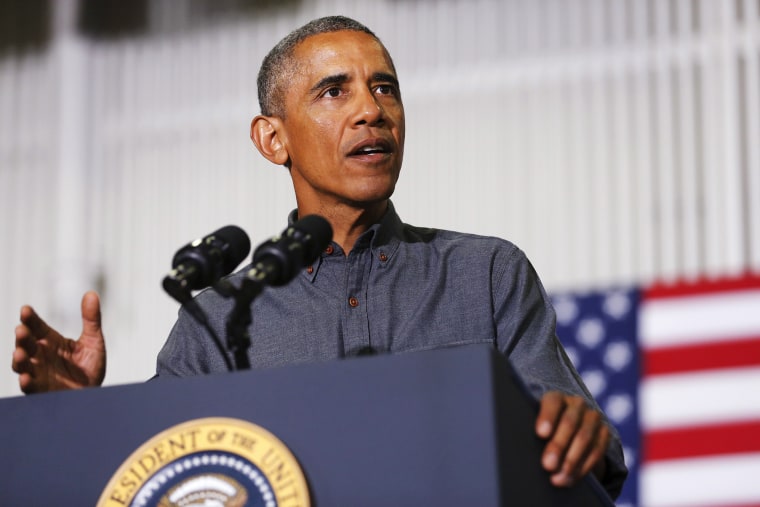Saudi Arabia's King Salman will meet with President Obama today, and as Politico put it, the Saudi king will meet with a U.S. leader "with a swagger in his step."
Nearly four months after he skipped President Barack Obama's high-profile Camp David summit, Saudi Arabia's King Salman will arrive at the White House to find a strengthened Obama and less leeway to influence U.S. policy toward Iran. The elderly Arab monarch's White House visit Friday comes just days after Obama secured the Senate votes he needs for the Iran nuclear deal to survive Congress.
Senate support for the diplomatic solution is still growing -- in addition to the three new endorsements yesterday, Sen. Michael Bennet (D-Colo.) announced his backing for the policy this morning. Sen. Ben Cardin (D-Md.) announced his opposition around the same time, but as a practical matter, his siding with the far-right on the issue won't change the outcome.
Under the circumstances, it's tough to blame the president for having "a swagger in his step," not just because he's overcome the Saudis' skepticism about the international agreement, but also because Obama has had quite a bit of success lately.
Barring any unexpected developments, the successful implementation of the new U.S. policy in Iran is among the most consequential diplomatic success stories in a generation.
But Roll Call's Steven Dennis noted this week that it's not the only issue that's gone President Obama's way lately. Looking back over just the last three months, we see related victories and breakthroughs on Cuba, marriage equality, the Affordable Care Act, fast-track trade-promotion authority, and overtime pay, among other things.
It's part of an increasingly successful 2015 for the Obama White House, which also includes a climate deal with China, new environmental safeguards, and net neutrality. If we include late last year -- the period after the midterm elections -- we can add a breakthrough immigration policy and the freeing of some American prisoners in North Korea.
Not too shabby for a "lame duck" president.
Indeed, as we talked about a couple of months ago, it's worth looking back at the political climate in November 2014 -- just 10 months ago -- in the wake of a very successful election cycle for Republicans.
Because it was at this point that much of the political world simply assumed that the Obama presidency was effectively over. Sure, he'd still be in office, and maybe he'd make a decision or two, but the president's ability to advance his agenda and rack up major accomplishments had passed. Obama was irrelevant, the argument went. Republicans were ascendant and it was time to start thinking about the 2016 race.
Indeed, many expected this precisely because the script for "lame duck" presidents is so familiar, especially following a stinging electoral rebuke.
And yet, here we are. The 2014 midterms are a distant memory; Republicans lack direction and leadership; and the Obama administration has spent the year scoring one victory after another.
Remember, the parties had two very different explanations for what transpired in the last election cycle. For Republicans, GOP candidates won because Americans rejected progressivism. For the White House, voters were irritated with a Beltway that accomplishes nothing. Voters weren't rejecting liberalism so much as they were expressing contempt for political paralysis.
The president saw no reason to temper his ambitions because as far as Obama's concerned, he's delivering on what people want: progress and constructive, effective policymaking.
About a month after the midterms, as we discussed at the time, Republicans seemed dumbfounded by the president's governing strategy. "Didn't he see the election results?" GOP lawmakers kept asking. "Doesn't he realize he lost?"
The president did realize it, he just didn't see the point in giving up.
And with the benefit of hindsight, the president's strategy appears to be vindicated.
